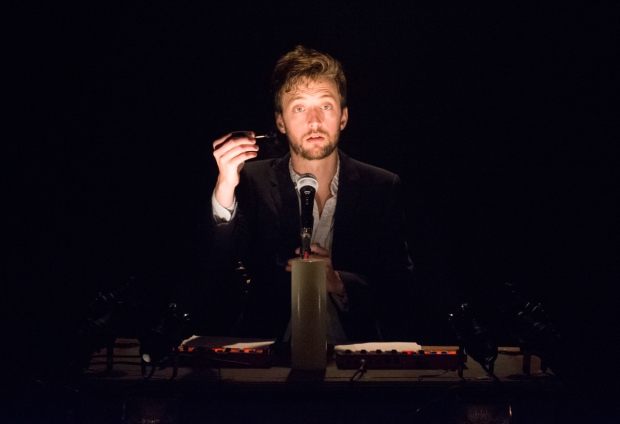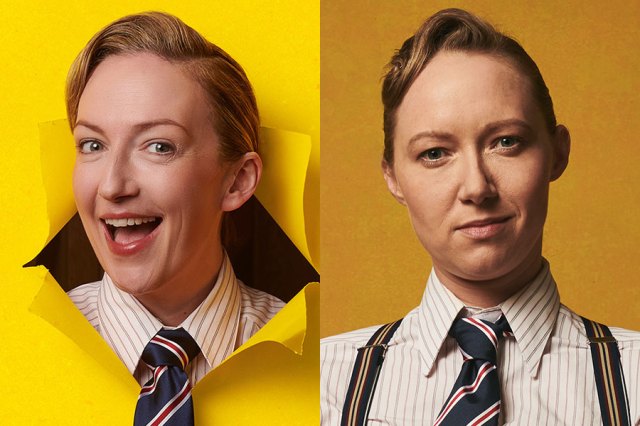Matt Trueman: Edinburgh and the end of the world
Themes at this year’s Edinburgh Festival included the apocalypse, masculinity and the inherent selfishness of art

(© Niall Walker)
How many times can the world end in one month? Let’s see. Kieran Hurley polished it off with a boom-bust blow-out in Heads Up. Both Yokai and Bildraum wrought havoc on miniature civilisations. Jenna Watt’s Faslane floated the threat of mutually assured destruction, while the circus piece Perhaps Hope mulled a disintegrating world hammered by climate change. Ontroerend Goed just vanished us in a poof, imagining a World Without Us that crumbles, heals and is finally swallowed by the sun. Remind me: what’s the plural of apocalypse?
Clearly a Fringe full of revelations isn’t simply a coincidence. It marks a moment of anxiety, a sense that the world is teetering on the brink. No need to list the terrors here. You know them all too well, living alongside them every day on screens and in newsprint. The question – and it’s one that recurred and recurred in Edinburgh – is what can art do in the face of them?
Or, to put it another way, what’s the point of any of this? Why do artists even make art?
Several shows fretted about the inherent selfishness of the act. Happy Hour encapsulated the delights, follies and frustrations that Mauro Paccagnella and Alessandro Bernardeschi have found in dancing together for 25 years. Was it all for us, or just for them? Daniel Oliver’s Weird Séance suggested that the live art scene, forever playing to itself, was just another way of wanking off in the woods, while Seiriol Davies’ How To Win Against History held up Henry Cyril Paget, a man who blew the family fortune putting on his own shows, to question the self-indulgence of avant garde art. Even Alan Cumming was at it. Beneath his cabaret of ‘Sappy Songs’ were biographical concerns. Why, he seemed to be asking, do I need to stand on a stage and sing at strangers?
No Edinburgh Fringe will dismantle the patriarchy in a month, but this one certainly chipped away at it
All these shows, in their own way, were joyful: each an hour of escape. They were, as FK Alexander’s (I Could Go On Singing) Over the Rainbow embodied, soothing somethings. Each time she sang Judy Garland’s swansong against a backdrop of aggressive noise music, its beauty made the room bearable again. Art as tonic – or maybe just distraction.
But can it be more than that? Shôn Dale Jones asked as much in The Duke, weaving together three stories about the value of art against the backdrop of the refugee crisis. As a show, it delighted, but as an event, it did genuine good. Rather than charge for tickets, Dale Jones invited donations to Save the Children afterwards.
To change the world, however, art needn’t overhaul it. It works on an individual level, more than a societal one; by longshore drift, not handbrake turns. No Edinburgh Fringe will dismantle the patriarchy in a month, but this one certainly chipped away at it. Alice Birch‘s Revolt. She Said. Revolt Again. made feminist revolution look like the most reasonable thing in the world, while Hot Brown Honey re-purposed the tropes of burlesque to take aim against white, male privilege: entertainment as empowerment.
I found myself forced to confront masculinity
Gender was the hot topic. Stacey Gregg‘s Scorch mulled its fluidity, Nic Green’s Cock and Bull protested its politics. Beneath its evocation of terrorism, Bronks Theatre’s Us/Them asked what values we instil into girls and boys from an early age.
Me? I found myself forced to confront masculinity – and it’s that I’ll take away from this year’s festival. Be it Richard Gadd trying to shake the monkey off his back in his Edinburgh Comedy Award-winning show, or Rash Dash embodying the unflinching, unquestioning self-assurance of two brothers in Two Man Show, masculinity so often felt bound up in physicality: strength, power, muscularity. Speaking personally, all 5’6" of me, it’s not a masculinity I recognise in myself. That came from James Thierrée‘s The Toad Knew: a man so wrapped up in his work, his way of staving off death, that he neglects those around him.
If this was a Fringe that suggested ‘masculinity in crisis,’ one show said, "Well, good." Christeene – Paul Soileau’s anarcho-trans drag shaman – creates a space of genuine gender confusion and confrontation; one that assaults and energises an audience in order that we might really hear her preaching. When she yells, "Masculinity is dead," we listen. Hell, we whoop and cheer. In its own way, it’s a piece that pushes for the end of the world as it is now. That needn’t mean apocalypse. It can be a new beginning.













